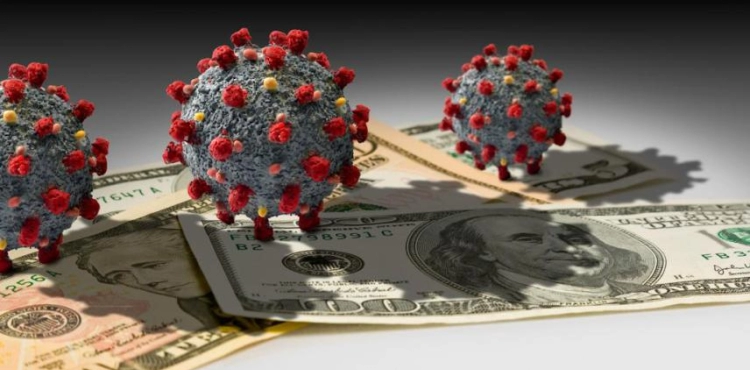Within weeks, the outbreak of the Corona virus and the isolation of millions of people has weakened the global economy to the point that economists expect the fiercest contraction in modern history and may be worse than the "Great Crash".
This is expected to be accompanied by a rise in the unemployment rate. The magnitude of the shock will be related to the treatment methods adopted by governments, central banks and international institutions, and the duration of the health crisis.
Economists at Moody´s credit rating agency expect that "the economies of the Group of Twenty countries face a shock in the first part of the year and record a contraction in 2020 before hitting anew in 2021."
The Secretary-General of the Organization for Economic Cooperation and Development Angel Gurria told the BBC that he expected the global economy to suffer "for years".
The current crisis appears to be more severe than the one that occurred in 2008 because it affects not only the financial sector but also part of the real economy with the collapse of production and thus supply, as well as demand due to the isolation imposed on millions of people.
Transportation, tourism, and distribution are all disaster sectors, but others are better positioned, such as pharmacy, equipment-related industries, health products, and e-commerce of foodstuffs.
Together, the G20 countries are expected to see a 0.5 percent contraction in gross domestic product this year, according to Moody´s. In the United States, this contraction will be -2 percent, and in the European Union -2.2 percent. Moody´s adds that China will grow by 3.3 percent, which is a very weak pace for the country.
The US banking group, Moody´s, expects a 3.8 percent contraction in 2020, while "Deutsche Bank" sees it as the worst contraction of the US economy since at least the "Second World War."
In Europe, the German Economy Minister reported a contraction of "no less than" five percent in 2020 in Germany and France, while Moody´s expects 1.4 percent. Nuno Fernandez, a professor at the IESA Business School, talks of a contraction of -2 percent in 2020, according to a scenario based on the end of the health crisis at the end of June.
For the UK, the KPMG Group expects a further 2.6 percent decline and could double if the epidemic continues through the end of the summer.
In the eurozone, which has more protected labor legislation, the Capita Economics office expects a 12 percent rise in unemployment by the end of June, "dropping seven years of gains in this area", although an improvement will be recorded in the second half of the year.
In Britain and the United States, the unemployment rate is historically low thanks to the high number of fragile jobs in the context of "small businesses".
In the United States, where employees with long-term contracts can be laid off, the Labor Department announced Thursday that 3.3 million people filed the first registered unemployment claims, for the week between March 15 and March 21, an increase of three million from the previous week, which recorded about 282,000. New order. This number is unprecedented in the United States.
Even James Pollard, head of the central bank in St. Louis, said in an interview with Bloomberg Financial News that the unemployment rate may rise to thirty percent in the coming months.
The new Corona epidemic raises many doubts about price changes between the risks of an economic depression and deflation if demand collapses for a long time, but with inflationary pressure if currency rates are reduced or material shortages occur ... inflation rates are currently low and generally far from banks ’goals Central especially in the UK.
In the UK, Carl Emerson of the Institute for Tax Studies told AFP that the debt, which accounts for about ninety percent of gross domestic product, is currently high, but "reached about 260 percent after World War II."
As for the deficit of public accounts, it was not long ago at 2 percent, which made the conservatives a base in their budget, and rose to ten percent during the financial crisis in 2008.
Debt and deficits are supposed to be the smallest concerns of officials, while funding rates are historically low, says Jonathan Porte, professor of economics at King´s College in London in response to a question from France Press.
But from Washington to Berlin, it appears that the authorities are turning a blind eye to tightening budget policies by announcing recovery plans worth thousands of billions of dollars.
Noreal Roubini, an economist who had anticipated the 2008 crisis, joined the view that states and governments should strengthen health measures as well as direct support to those who lost their businesses or revenues for fear of reaching a "new Great Depression, worse" than the Depression of the 1930s, in an article in the British Guardian .
Fid / AA / MR / RK












